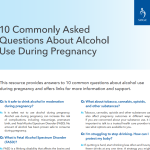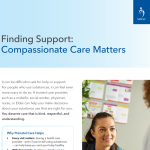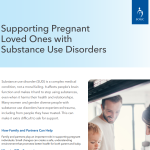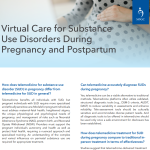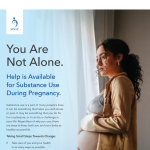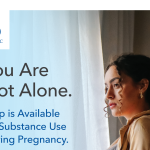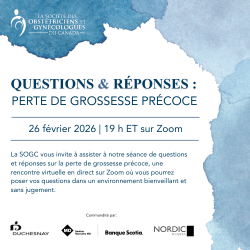Substance use in pregnancy
Using substances like nicotine, alcohol, or other drugs during pregnancy can affect a baby’s development. Reducing or stopping use at any stage of pregnancy can make a positive difference. Support is available in many communities and also online, and you don’t have to make changes alone. Speak with your health care provider, they can help you explore options and connect you with resources that support both your health and your baby’s well-being.
How serious are the risks of smoking during pregnancy?
Smoking during pregnancy can affect your baby’s development both before and after birth. Reducing or quitting smoking at any point in pregnancy can help lower these risks and support your baby’s health. It’s okay to take things one step at a time; there are supportive, non-judgmental resources available to help you find strategies that work for you.
Smoking during pregnancy is associated with increased risks such as miscarriage, going into labour too early, your water breaking too soon, and a low birth weight for baby. After birth, babies exposed to tobacco smoke during pregnancy may face a higher risk of Sudden Infant Death Syndrome (SIDS), and as they grow, they may be more likely to develop asthma.
The use of e-cigarettes/ vaping is not considered a safe alternative during pregnancy, as this still exposes you and your baby to nicotine and other chemicals. Nicotine replacement therapies like patches carry fewer risks than smoking, but it’s best to speak with your health care provider to explore the safest and most realistic options for you. Whether you’re ready to quit completely or want to start by cutting back, every step toward reducing exposure can make a difference for both you and your baby.
What will happen if I drink alcohol during my pregnancy?
 Consumption of high amounts of alcohol is known to have serious effects on the baby. FASD (Fetal Alcohol Spectrum Disorder) is a diagnosis that describes the effects on the brain and body of a person exposed to alcohol before they were born. Children with FASD may be more at risk of developing depression and anxiety, experience difficulties in learning, memory, and attention, and have more challenges in social interactions and relationships. There is no known safe amount of alcohol during pregnancy, therefore, the safest choice is not to consume any alcohol while you are pregnant or if you might become pregnant. If you need help with alcohol dependency, talk to your health care provider.
Consumption of high amounts of alcohol is known to have serious effects on the baby. FASD (Fetal Alcohol Spectrum Disorder) is a diagnosis that describes the effects on the brain and body of a person exposed to alcohol before they were born. Children with FASD may be more at risk of developing depression and anxiety, experience difficulties in learning, memory, and attention, and have more challenges in social interactions and relationships. There is no known safe amount of alcohol during pregnancy, therefore, the safest choice is not to consume any alcohol while you are pregnant or if you might become pregnant. If you need help with alcohol dependency, talk to your health care provider.
Read more here.
Will cannabis harm my baby?
Cannabis in all forms, whether smoked or vaped, eaten, applied as a cream, or taken as a pill, may affect your baby’s brain development and can result in learning and behavioural issues that last throughout their life. Using cannabis products in pregnancy can also increase your risk of going into labour too early or your baby being born with a low birth weight.
There are effective, safe alternatives to using cannabis during pregnancy for treating nausea and vomiting, anxiety, or pain; please speak with your health care provider to discuss your options.
Read more about cannabis and pregnancy here.
Opioid use during pregnancy
Opioids refer to several drugs, including heroin, methadone, hydromorphone, fentanyl, and morphine. Some people take prescribed opioids for pain control, others use unregulated forms of opioids such as heroin, and some use opioid substitutes such as methadone for treatment of addiction. Unregulated opioids can pose a significant danger to life and health due to the risk of fentanyl being present in illicit drugs.
Some people continue using opioids during pregnancy, and it’s important to know that opioid use can affect a baby’s development and health. Research has linked opioid use in pregnancy with outcomes such as reduced fetal growth, preterm labor, stillbirth, and withdrawal symptoms in newborns. However, support and treatment options are available to help reduce these risks and promote the well-being of both you and your baby.
Naloxone (the overdose-reversal medication) is considered a safe treatment for opioid overdose for pregnant individuals, however even if an overdose is reversed with naloxone you should still seek immediate medical care to monitor your health and the health of your baby.
Safe, evidence-based treatments such as medication-assisted treatment (MAT) can help manage opioid use during pregnancy and improve health outcomes. You don’t have to navigate this alone. Speaking with a health care provider can help you explore your options and connect you with care that supports your needs in a non-judgmental way.
Read more here.
Cocaine use during pregnancy
Cocaine affects women differently than men, and that women may show a greater sensitivity to the drug, and are more likely to become addicted to it. They also tend to have more severe health problems as a result of use. Cocaine use during pregnancy has been associated with negative outcomes, including low birth weight, premature rupture of membranes (water breaking too soon), miscarriage, preterm labour, and SIDS (Sudden Infant Death Syndrome).
Amphetamine use during pregnancy
Amphetamines may be used during pregnancy for various reasons: sometimes as prescribed medication for conditions like attention difficulties or sleep disorders, and sometimes in non-prescribed contexts for their stimulant effects. In some cases, amphetamines are used alongside other substances, which can make it challenging to fully understand their specific impacts on pregnancy and newborn health.
However, research suggests that amphetamine use during pregnancy may be associated with certain outcomes such as fetal growth restriction, preterm labor, and withdrawal symptoms in newborns. If you are using amphetamines or have concerns about medication or substance use during pregnancy, supportive, non-judgmental care is available. Speak with your health care provider to explore ways to reduce potential risks while supporting your overall well-being and that of your baby.
Virtual care for substance use in pregnancy
If in-person visits with a health care provider are challenging for you because of access to transportation, time off work, or other concerns, many clinics offer telehealth, virtual, and hybrid care options.
Printable Resources and Posters for Patients

Help Support Groundbreaking Research and Education That Saves Lives and Improves Reproductive Health for All Women.
Donate Today

